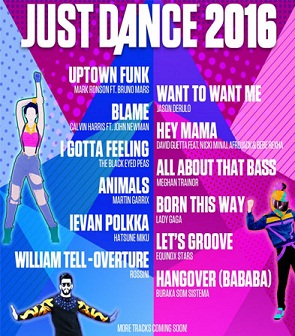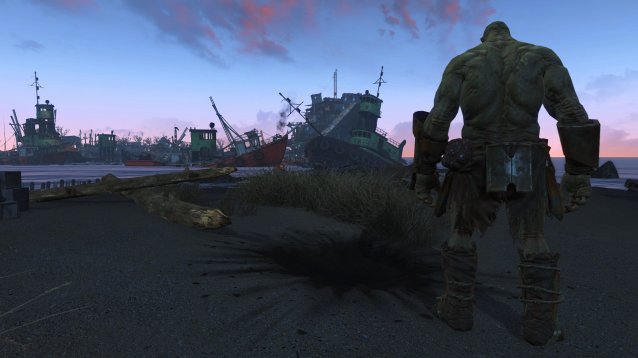

Game Rant’s Andrew Dyce Reviews Portal 2
When developer Valve first released Portal in 2007 bundled with the now-beloved Orange Box, gamers’ expectations and thoughts for the future were blown clear out of the water. With such a high standard set by the first title, Valve has stacked the odds against themselves for Portal 2, but nobody can accuse them of not taking the issue seriously. With a longer campaign, all new devices and mechanics, and an entirely separate co-operative campaign, Portal 2 is a much greater title on paper.
But with four years to get used to the inspired design and puzzles that Valve first pioneered, does the property still possess the same staying power? Simply put: absolutely.
To say that Portal 2 takes each aspect of the original title to the next step in evolution would be somewhat of an understatement. Not just in terms of polish or graphics – and believe us, the game looks much better – but in practically every area of game design. The general view of the original game was not that of a major release, but more of a tech demo or thought experiment. The team’s take on physics as a means to solve puzzles was truly inspired, but yet to be fully realized.
With Portal 2, Valve has shown just how much potential they saw in that original game, and how clearly they understood what aspects of the narrative resonated with audiences. The actual gameplay of the series is straightforward enough: the player is challenged to make their way through various rooms, solving puzzles using portals and environmental features. From that foundation, it’s the story and flow of Portal 2 that takes center stage.
The first feature of the sequel that players will notice is just how much more story has been added, being told via voiced characters as opposed to the subtle wall paintings or Freudian slips of the first game. Those implied story points are still present, but with no more than three scripted characters appearing throughout the main storyline, the emphasis on a greater plot is clear.
This isn’t a small addition, since the focus on puzzles and physics over a deep narrative may have been a serious complaint against the first Portal. This time around, protagonist Chell once again finds herself mysteriously awoken in the Aperture Science facility with little background information on what to expect. Players won’t be alone this time, accompanied by the incredibly neurotic and brilliantly-written personality sphere known as Wheatley, voiced by Stephen Merchant.
Much has changed since the last time Chell struggled to escape from the deadly puzzles of the facility, implemented by the now-deactivated AI administrator GLaDOS. But no title would be complete without the vindictive and masochistic supercomputer, so circumstances soon bring her to life once again. From that point on the story takes Chell, Wheatley and GLaDOS on a fast-paced journey through the past, present and future of Aperture Science.
It’s extremely difficult to discuss the various plot twists and revelations without giving at least minor spoilers, and each story beat is executed so well, that to give even a slight idea of what to expect would be doing any player a disservice. But trust us when we tell you that each character in the Portal universe is given a much richer personality and clearer moral complexity than most will expect.
In the lead up to Portal 2‘s release, the various gameplay videos released made it abundantly clear that portals and cubes wouldn’t be the only tools players would need to master to escape. With thermal discouragement beams, propulsion and repulsion gels, and even aerial faithplates to add to puzzle complexity, players who had some trouble with the later challenges in the original game may have already assumed that the difficulty has been raised exponentially.
But the developers have promised that Portal 2 is “less frustrating” than the original, working to challenge players to intelligently solve their puzzles, not testing their speed or response times. The end result is a series of challenges which are less difficult to complete once the secret is discovered, but the lack of straightforward puzzles that are easy to grasp yet difficult to execute may be missed by some.
The addition of various gels and tractor breams that must be used in tandem more than make up for any drop-off in difficulty. Let’s put it this way, no matter how much less frustrating the various puzzles may be, there are guaranteed to be a few that will leave you stumped.
The number of mechanics and twists on past conventions will come as a major relief, since part of the enjoyment derived from Portal was learning to implement brand new strategies and physics principles. To find a sequel that simply offered more of the same would have been an easy trap to fall into, but Valve instead succeeded in duplicating that feeling in completely new ways.
There will still be those who find failing at a given puzzle numerous times more frustrating than enjoyable, but that comes with the territory. The most frustrating part of the original game was knowing exactly how to solve a puzzle, but feeling completely unable to accomplish the task on a technical level. That is simply not there in Portal 2, with even the most seemingly-ambiguous rooms slowly unveiling a solution through simple experimentation. The act of discovery is as stimulating as it is rewarding, so it’s really no surprise that Portal is taught in schools today.
The feeling of accomplishment that comes with a puzzle solved due to intelligent thought and a well-executed strategy is hard to match in the world of gaming, and with a few such moments rewarded with massive effects on the world, Portal 2 takes the sentiment even farther. In case solving a puzzle doesn’t offer enough intrinsic value to your own gaming, then it should be noted that the actual actions required in manipulating objects and traversing through environments is in itself a more entertaining proposition this time around.
Continued:
« 1 2 »




 10 Cool Gaming Items You Can Get On Etsy For Under $20
10 Cool Gaming Items You Can Get On Etsy For Under $20 Rougoku Walkthrough
Rougoku Walkthrough Fallout 4 Guide: How to Unlock Framerate to Over 60FPS
Fallout 4 Guide: How to Unlock Framerate to Over 60FPS Valiant Hearts: The Great War Complete Video Walkthrough for All Chapters
Valiant Hearts: The Great War Complete Video Walkthrough for All Chapters What We Can Learn from 2015's Online Security & Privacy Challenges
What We Can Learn from 2015's Online Security & Privacy Challenges